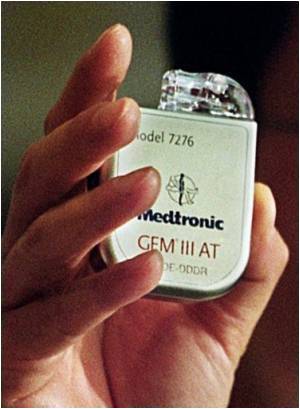After having devices implanted to ensure proper heart rhythm, people with a distressed (Type D) personality reported worse health than other patients, states new research.

"The finding is important because it demonstrates that the trauma of experiencing the lifesaving shock isn't the only factor contributing to a patient's sense of his or her well-being and identifies a group of patients who may need additional care to improve survivability," said Susanne S. Pedersen Ph.D., lead author of the study and professor of cardiac psychology at Tilburg University and at the Thoraxcenter at Erasmus Medical Center in Rotterdam, the Netherlands. "If we only focus on patients who have received a shock, we risk under-diagnosing patients with distress and not providing them with the additional treatment they may need."Participants in the study (79 percent men) answered questions to assess their health status and determine if they had a Type D personality.
The personality questionnaire required a response to statements such as "I often feel unhappy" or "I am a closed kind of person." Patients rated their health on a scale from 0 to 100 the day before their defibrillator was implanted and again at three, six and 12 months later. About 24 percent of the group had a Type D personality while 14 percent had experienced a shock within the first year. Other findings about how patients rated their health:
- Patients who received a shock during the first year rated their physical and mental health 3 to 13 points lower than those who didn't.
- Patients with Type D traits scored themselves 2 to 8 points lower than others.
- Patients who had both Type D personality traits and had received a shock scored themselves up to 30 points lower than others.
Source-Eurekalert














